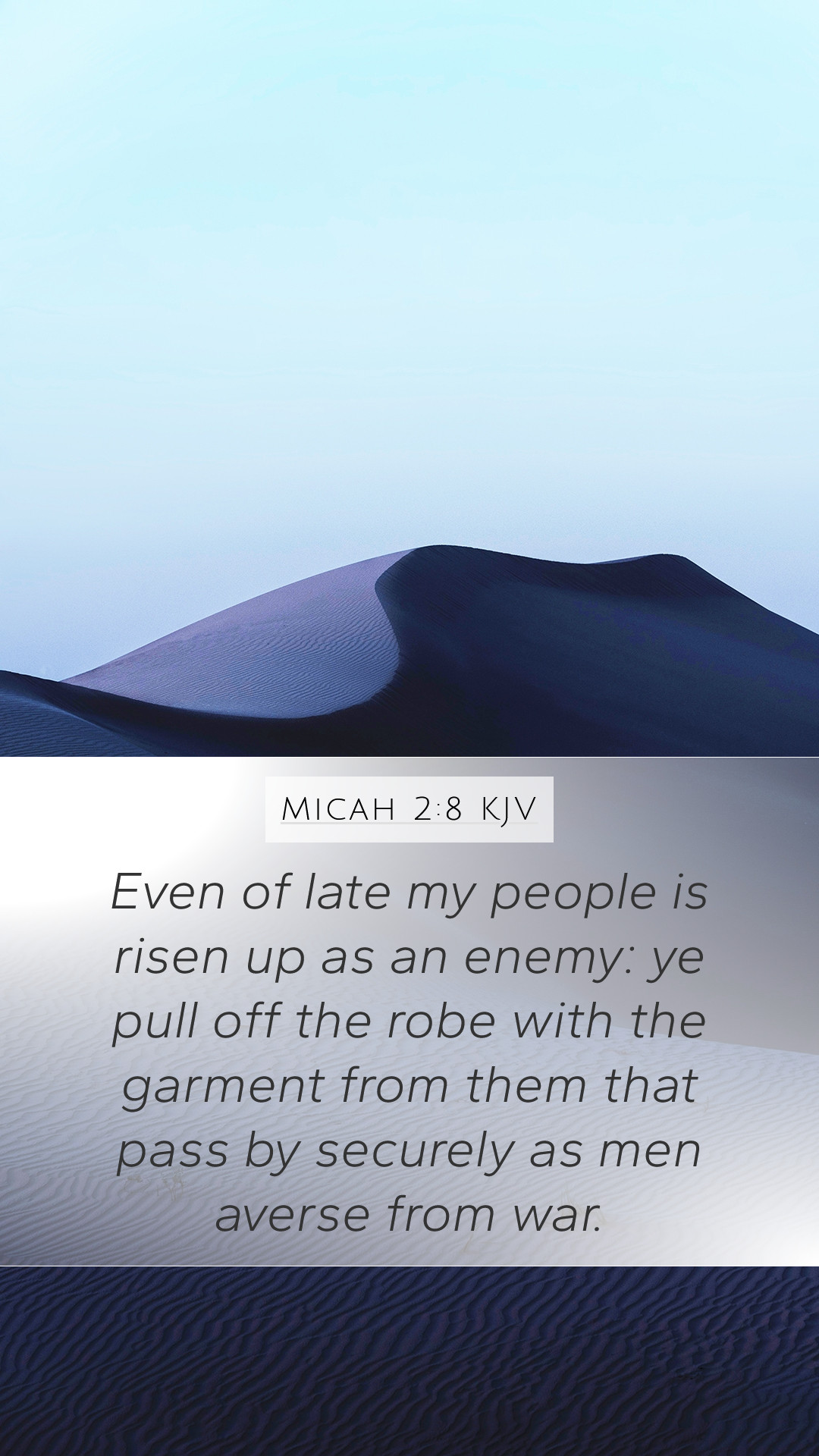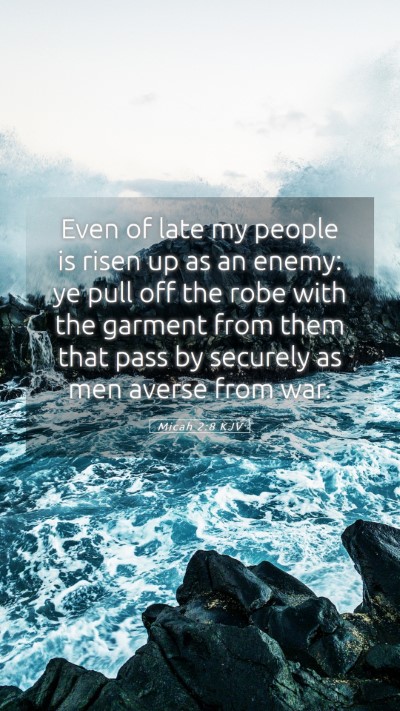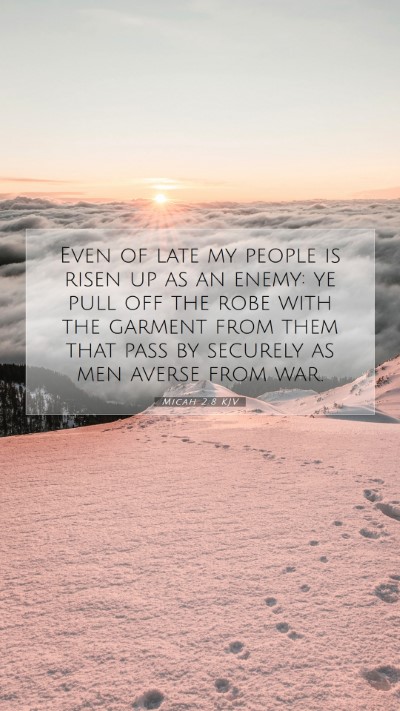Old Testament
Genesis Exodus Leviticus Numbers Deuteronomy Joshua Judges Ruth 1 Samuel 2 Samuel 1 Kings 2 Kings 1 Chronicles 2 Chronicles Ezra Nehemiah Esther Job Psalms Proverbs Ecclesiastes Song of Solomon Isaiah Jeremiah Lamentations Ezekiel Daniel Hosea Joel Amos Obadiah Jonah Micah Nahum Habakkuk Zephaniah Haggai Zechariah MalachiMicah 2:8 Meaning
What is the meaning of Micah 2:8?
Even of late my people is risen up as an enemy: ye pull off the robe with the garment from them that pass by securely as men averse from war.
Micah 2:8 Bible Verse Meaning
Understanding Micah 2:8 - A Comprehensive Bible Verse Commentary
Bible Verse: Micah 2:8 - "But lately my people have risen up as an enemy: ye pull off the robe with the garment from them that pass by securely as men averse from war."
Overview of Micah 2:8
This verse reflects the deep social injustices and moral decline prevalent in the time of the prophet Micah. The people of Israel, who were expected to be a holy nation, have acted contrary to their calling by exploiting the vulnerable and oppressing one another.
Historical Context
In Micah's time, around the 8th century BC, Israel faced significant challenges. The nation was embroiled in corruption and social strife, and the leadership had turned against the principles of justice and mercy. The mention of "my people have risen up as an enemy" suggests a betrayal amongst the Israelites themselves, breaching the trust and communal harmony expected within their society.
Key Insights from Commentaries
-
Matthew Henry:
Henry emphasizes the moral failure of the Israelites, suggesting that they had become hostile not only to their neighbors but also to God's covenant. He likens their actions to those of foes rather than fellow countrymen, highlighting that they are stripping away the dignity and possessions of others.
-
Albert Barnes:
Barnes identifies the imagery of robbery and violence that permeates this verse. He interprets the act of "pulling off the robe" as a metaphor for the harsh treatment of the innocent, particularly the economically vulnerable, illustrating how deeply rooted the corruption was in society.
-
Adam Clarke:
Clarke offers deeper insight into the societal implications of the verse, indicating that the acts described signify betrayal among the Israelites. He notes that "men pass by securely," implying that even those least likely to be harmed were not safe from the claws of greed and injustice.
Biblical Themes and Applications
The themes represented in Micah 2:8 speak volumes about the nature of justice, compassion, and community. These elements remain relevant today as they challenge individuals and communities to reflect on their treatment of others.
Theme of Social Justice
At the heart of Micah 2:8 lies a powerful call for social justice. The commentary guides us to grasp the seriousness of exploiting the powerless and calls on individuals today to advocate for those who cannot advocate for themselves. Understanding Scripture calls us to examine our own lives and how we treat the underprivileged among us.
Reflection on Community
Micah's prophetic declaration serves as a mirror to contemporary society, challenging us to consider our collective moral standing. We must ask; are we contributing to a just community, or are we part of the problem, acting as an enemy toward our brothers and sisters?
Bible Study Insights
For students of the Bible, this verse provides a foundation for engaging with complex issues of morality in faith contexts. It allows for in-depth Bible verse analysis and discussions in Bible study groups or online Bible study sessions.
Cross References
- Isaiah 10:1-2 - Woes upon those who enact unjust laws
- Amos 2:6-7 - Israel's transgressions and injustices against the poor
- Micah 6:8 - A call to act justly, love mercy, and walk humbly with God
Conclusion
This verse from Micah calls on individuals and communities to reflect on their actions and relationships, offering rich opportunities for Bible verse interpretations and understanding. The message is timeless: we must strive toward justice and compassion, ensuring that we do not become complicit in the injustices around us.
For those engaging in scripture analysis, Micah 2:8 serves as a profound reminder of the responsibilities we carry as stewards of our community, urging us to daily apply its lessons into our lives.


